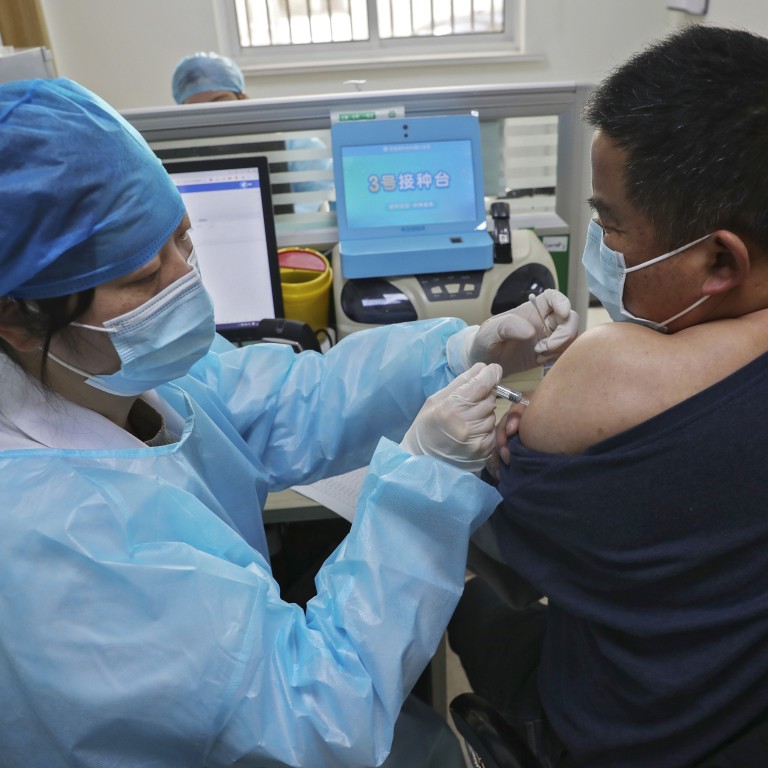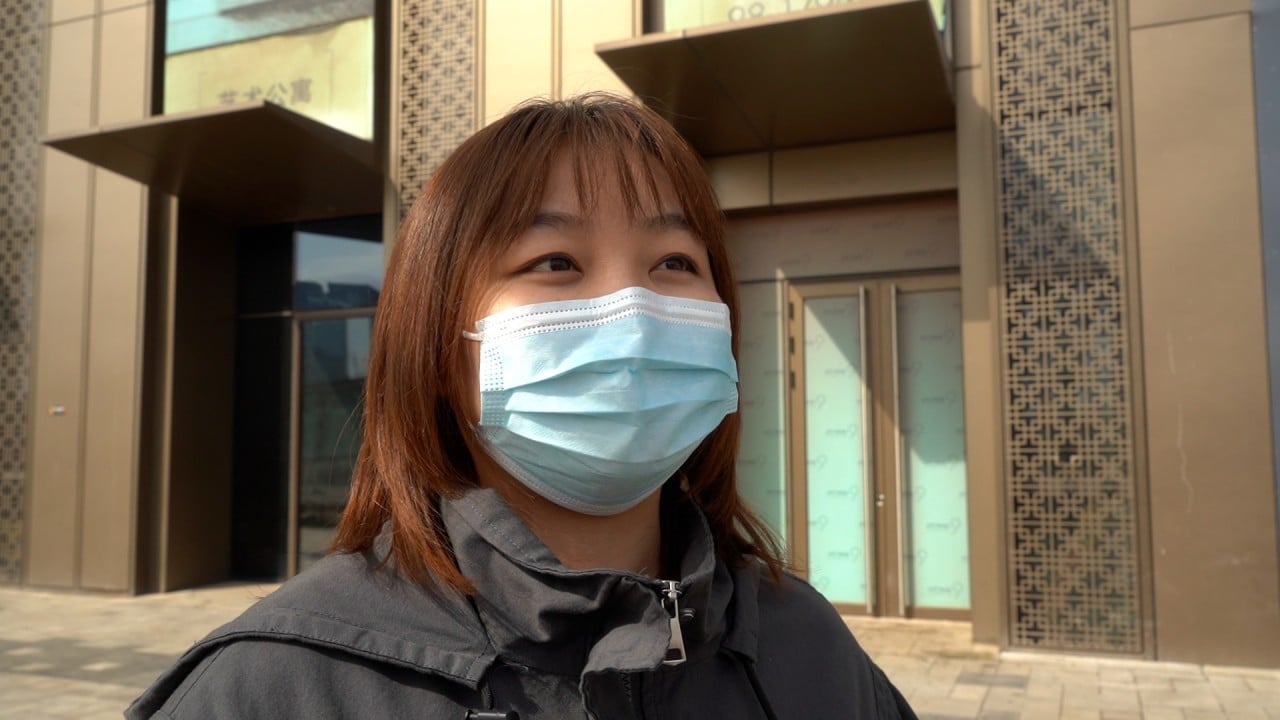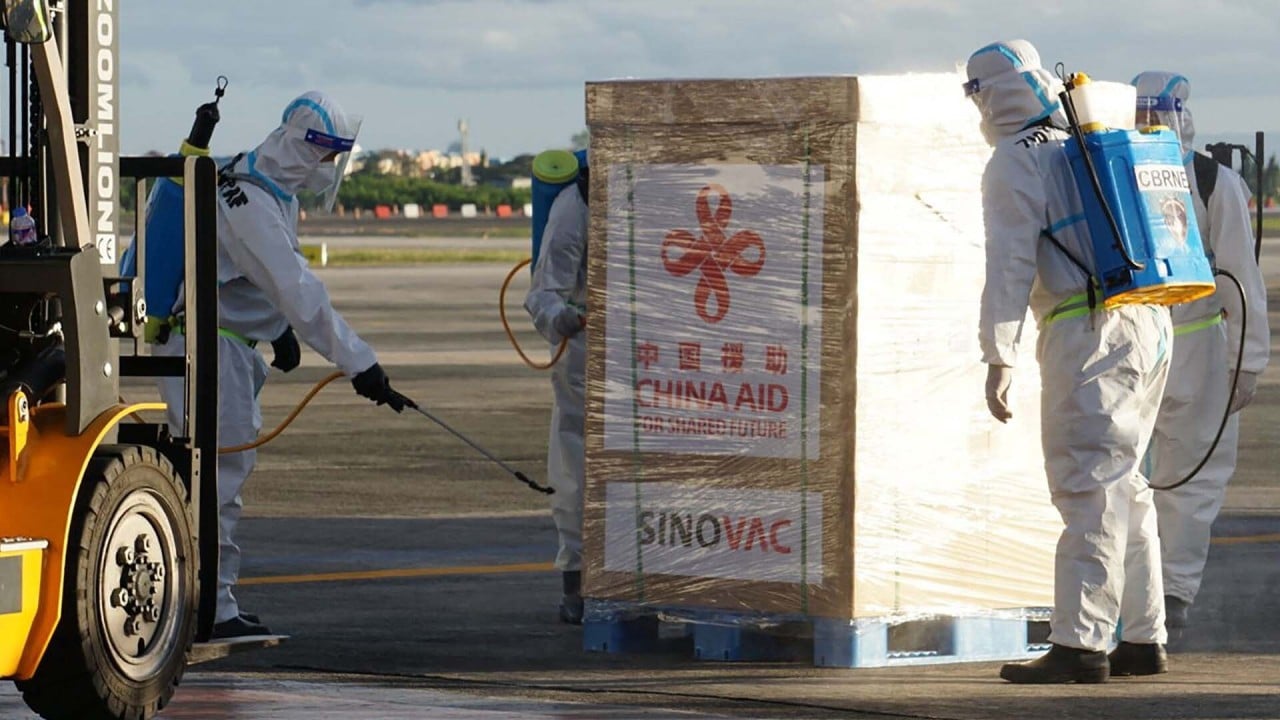
Exclusive | China offers Covid-19 vaccine to foreign diplomats – but will they take it?
- European diplomat says his colleagues would prefer to have shots being given in their home country
- But travelling home to get vaccinated could mean complications on return
China has offered foreign diplomats in Beijing inoculation with one of its coronavirus vaccines, possibly as early as this month.
But the offer has had a mixed response among overseas diplomats amid concerns that the shots could complicate future travel.
Diplomatic sources said the protocol department at the Chinese foreign ministry told them this week that they could be given a vaccine developed by state firm Sinopharm.
The vaccine went through large-scale phase 3 human trials in 10 countries, including the United Arab Emirates, and has been authorised for emergency elsewhere in the world, but so far the developers have not published detailed results of those trials.

04:09
China plans to vaccinate 560 million people by June despite huge challenges
One European diplomat, who declined to be named, said the offer could be good news for envoys whose home country had approved the vaccine or where no vaccine was available.
“We are hesitating because we prefer to take the vaccines that are being rolled out in our home country,” the diplomat said, referring to vaccines by Pfizer-BioNTech, Moderna and AstraZeneca-Oxford.
Chinese trio arrested over fake coronavirus vaccines in South Africa
Although two of these vaccines have been included in licensing deals with Chinese firms to be imported or produced in China, no foreign vaccine has been approved in China yet.
“Travelling back home to be vaccinated and returning to China is too complicated. The [antibodies] from vaccination might potentially make it difficult to enter China because of the antibody test,” the diplomat said.
China requires inbound passengers to produce negative results for the virus and the antibody immunoglobulin M – usually the first type of antibody produced to counter infection – within 48 hours of boarding.
The foreign ministry said positive post-vaccination antibody tests were complicated and it was working to ensure vaccinated people could enter China smoothly by satisfying other requirements.
Nevertheless, there have been cases of vaccinated people being denied entry after such tests despite producing vaccination certificates.

03:05
China-made coronavirus vaccines widely distributed despite efficacy concerns
Some embassies are in talks with Beijing to clarify procedures to allow diplomats to fly home to be vaccinated and re-enter China smoothly.
An Asian diplomat said he was surprised by the offer and would await instructions from his home country before making a decision.
“One of the considerations is whether to take a vaccine that has not been approved in the home country. We don’t know yet whether such vaccines will be recognised if there is to be a so-called vaccine passport to allow travel in the future,” the diplomat said.
Italy blocks export of AstraZeneca vaccine to Australia
Another diplomat said much of the inconvenience could be overcome by China giving the green light to a vaccine that had been approved in other parts of the world.
Chinese firm Fosun, which is responsible for commercialising the Pfizer-BioNTech vaccine, has been in contact with some embassies about inoculating envoys and non-Chinese employees of foreign firms, but the shots cannot be given until the vaccine is officially approved in China.
The AstraZeneca-Oxford shot, which has been authorised for emergency use in the European Union and by the WHO, has a licensing deal with Shenzhen-based BioKangtai, which has a production facility available but the vaccine has also yet to be approved in China.
About 52 million Covid-19 vaccine doses have been given in China so far. Authorities are focusing initially on essential workers and people with a high risk of contracting or spreading Covid-19.
The country has plans to inoculate 40 per cent of the population by July but the programme does not cover foreigners.


